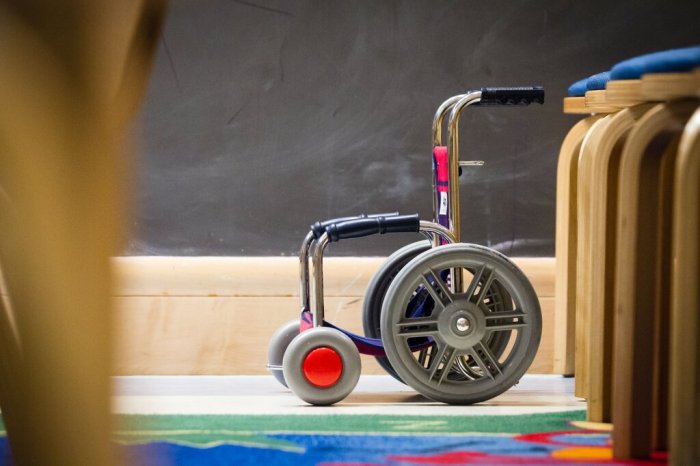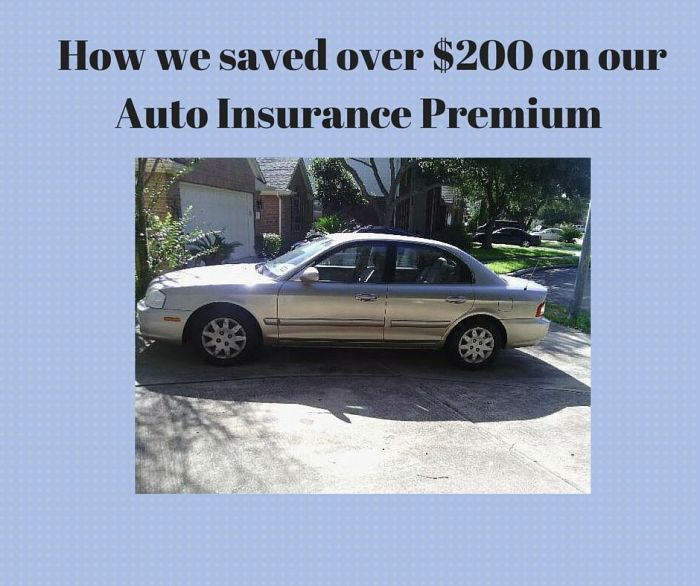
When an insurance company totals your car what happens? It’s a question that can leave you feeling lost and confused. Your car is more than just a mode of transportation – it’s your freedom, your way to get around, and sometimes even a symbol of your hard work. So, when it’s totaled, it can feel like the rug has been pulled out from under you. But don’t worry, there are steps you can take to navigate this situation and get back on your wheels.
First things first, understand what it means for your car to be “totaled.” Essentially, it’s when the cost to repair the damage exceeds the actual value of the vehicle. Insurance companies use various formulas to determine this, but the bottom line is that your car is deemed too damaged to be worth fixing. This means you won’t be getting your old car back, but you will receive compensation from your insurance company.
What is a Total Loss?: When An Insurance Company Totals Your Car What Happens

When your car is damaged beyond repair or the cost of repairs exceeds its actual value, it’s considered a total loss. This means your insurance company will declare your car a total loss and pay you the actual cash value (ACV) of your vehicle, minus any applicable deductible.
Determining a Total Loss
Insurance companies use several factors to determine if a vehicle is a total loss. These factors include:
- The cost of repairs: If the cost of repairs exceeds the actual cash value (ACV) of the vehicle, it’s likely to be declared a total loss. This is because the insurance company will not pay more to repair a vehicle than its worth.
- The severity of the damage: If the damage is extensive and affects crucial components like the frame or engine, the vehicle is more likely to be totaled. This is because the repair process might be complex and expensive.
- The age and condition of the vehicle: Older vehicles with high mileage are more likely to be declared a total loss, as their ACV is typically lower. This is because the cost of repairs on older vehicles can be high, even for minor damage.
- The availability of parts: If the necessary parts are rare or unavailable, the cost of repairs can increase significantly, making it more likely for the vehicle to be totaled.
Total Loss vs. Salvage Vehicle
While a total loss refers to a vehicle that is deemed unrepairable, a salvage vehicle is a vehicle that has been declared a total loss but still has some value. This value can come from the salvageable parts or the potential to be repaired.
- Total loss: A total loss vehicle is deemed unrepairable and has no further value to the insurance company. It is usually scrapped or sold for parts.
- Salvage vehicle: A salvage vehicle is a total loss vehicle that still has some value. This value can come from the salvageable parts or the potential to be repaired. Salvage vehicles are typically sold to salvage yards or individuals who are willing to repair them.
Your Rights and Responsibilities

So, your car is totaled. It’s a bummer, but you’re not alone. Now’s the time to understand your rights and responsibilities. You’ll need to get in touch with your insurance company and follow their process to get compensated.
Reporting a Total Loss
You’ll need to contact your insurance company as soon as possible after the accident. This usually involves calling their claims hotline or filing a claim online. Be prepared to provide them with some basic information, like your policy number, the date and time of the accident, and the location. You’ll also need to give them a detailed account of what happened.
Required Documents and Information
To process your claim, your insurance company will likely require you to provide them with the following:
- Proof of Ownership: This could be your vehicle registration or title.
- Police Report: If the accident involved another vehicle or property damage, you’ll need to get a police report.
- Photographs of the Damage: Take pictures of the damage to your vehicle from all angles. This helps your insurance company assess the extent of the damage.
- Repair Estimates: If you had any repairs done to the vehicle before it was totaled, get estimates from a reputable mechanic.
- Personal Property Inventory: If you had any personal belongings in your car, you’ll need to create an inventory of them and their estimated value.
Policyholder Rights
As a policyholder, you have certain rights when your car is totaled. For instance, you have the right to:
- Negotiate the Settlement Amount: Your insurance company will determine the actual cash value (ACV) of your vehicle. This is the amount they’re willing to pay you. You have the right to negotiate this amount, especially if you believe the ACV is too low.
- Choose a Repair Shop: In some cases, your insurance company might allow you to choose a repair shop to get an estimate for the repairs. However, you should make sure the shop is reputable and licensed.
- Receive a Written Explanation of the Settlement: Your insurance company should provide you with a written explanation of how they arrived at the settlement amount. This documentation is crucial for your records.
Documenting the Accident
Thorough documentation is crucial for any insurance claim. You should:
- Take Detailed Notes: Immediately after the accident, write down everything you can remember about the incident, including the date, time, location, and any details about the other vehicles involved.
- Gather Witness Information: If anyone witnessed the accident, get their contact information.
- Preserve Evidence: Don’t dispose of any damaged parts of your vehicle until your insurance company has inspected them.
Settlement and Payment

Your car is totaled, and you’re ready to move on. But before you start shopping for a new ride, you need to figure out the settlement process. This is where your insurance company steps in to compensate you for your loss.
Settlement Options
There are a few different ways your insurance company might settle with you.
- Actual Cash Value (ACV): This is the most common method. ACV represents the fair market value of your car right before the accident, minus depreciation. It’s essentially what someone would pay for your car in its condition before the accident.
- Replacement Cost Value (RCV): This option replaces your car with a new one of the same make and model. It’s usually more favorable for newer cars, as depreciation plays a smaller role.
- Total Loss Settlement with Deductible: If you have a deductible on your collision coverage, you’ll have to pay this amount before the insurance company pays the rest.
Factors Affecting Settlement Amount
Several factors influence the amount you’ll receive.
- Year, Make, and Model: Older cars generally depreciate faster, resulting in a lower ACV.
- Mileage: High mileage can also reduce the value of your car.
- Condition: Cars in good condition with proper maintenance command higher values.
- Local Market Value: The prices of similar vehicles in your area play a role in determining the settlement.
Negotiating a Fair Settlement
It’s crucial to understand that the insurance company’s initial offer might not be the final word. You have the right to negotiate for a fair settlement.
- Research: Before accepting any offer, research the fair market value of your car using resources like Kelley Blue Book or Edmunds.
- Documentation: Gather all relevant documentation, including repair estimates, photos of the damage, and proof of maintenance.
- Be Prepared: Know your rights and be ready to explain why you believe the initial offer is inadequate.
- Be Polite: While you have the right to negotiate, maintain a respectful tone.
Maximizing Your Settlement
- Consider Repair Estimates: Even if your car is totaled, get repair estimates from reputable shops. This can help you argue for a higher settlement.
- Document Everything: Keep detailed records of all communications with the insurance company, including dates, times, and summaries of conversations.
- Don’t Rush: Take your time and don’t feel pressured to accept the first offer.
Replacing Your Vehicle
So, your car is totaled, and you’re probably thinking, “What now?” Don’t worry, this is where your insurance comes in to help you get back on the road. You have a few options when it comes to replacing your totaled vehicle.
You can choose to use the insurance settlement to buy a new or used vehicle. You’ll need to consider your budget, your needs, and your wants when making this decision.
Choosing a New or Used Vehicle
When deciding whether to buy a new or used vehicle, consider your budget, the current market conditions, and your preferences.
- New Vehicles: New vehicles offer the latest technology and safety features, but they come with a higher price tag. They also depreciate more quickly, which means you’ll lose value faster.
- Used Vehicles: Used vehicles are a more affordable option, and you can often find great deals on vehicles with low mileage. However, it’s important to have a vehicle inspected by a mechanic before you buy it to make sure it’s in good condition.
Finding a Suitable Replacement Vehicle
Finding the right replacement vehicle involves research and careful consideration.
- Research: Before you start shopping, do your research and determine what type of vehicle best suits your needs and budget. Consider factors like size, fuel efficiency, safety features, and reliability.
- Shop Around: Once you have a good idea of what you’re looking for, it’s time to start shopping around. Visit dealerships, check online listings, and talk to friends and family for recommendations.
- Test Drive: Always test drive a vehicle before you buy it. This will give you a chance to get a feel for the car and make sure it’s right for you.
- Get a Vehicle History Report: A vehicle history report can provide valuable information about a used vehicle’s past, including accident history, maintenance records, and title information.
Using the Insurance Settlement to Purchase a Vehicle
Your insurance settlement will be the money you receive from your insurance company after your car is totaled. You can use this money to purchase a new or used vehicle.
- Negotiating the Settlement: Before you accept a settlement offer, make sure you understand how the amount was calculated. You may be able to negotiate a higher settlement amount if you can prove that your vehicle was worth more than the initial offer.
- Paying for the Vehicle: You can use your insurance settlement to pay for the entire purchase price of a vehicle, or you can use it as a down payment.
Additional Considerations
A total loss can have a significant impact on your finances and your driving experience. It’s crucial to understand the broader implications of this event and take steps to protect yourself.
Impact on Insurance Premiums
A total loss claim can affect your future car insurance premiums. Insurance companies often consider your driving history and claims history when determining your rates. A total loss claim is a significant event that can increase your risk profile in the eyes of insurers, leading to higher premiums. The severity of the impact depends on various factors, including your insurance company, the type of coverage you have, and the circumstances of the accident.
Reviewing Your Insurance Policy, When an insurance company totals your car what happens
After experiencing a total loss, it’s essential to review your insurance policy carefully. This includes understanding the coverage you have, the deductibles you’re responsible for, and any limitations on your benefits. You may want to consider adjusting your coverage or seeking out different insurance providers to find more favorable rates.
Preventing Future Accidents
A total loss can be a stressful experience. It’s natural to feel apprehensive about getting back on the road. However, you can take steps to reduce the risk of future accidents. Here are some tips:
- Defensive Driving: Practice defensive driving techniques to anticipate potential hazards and react appropriately. This includes maintaining a safe following distance, avoiding distractions, and being aware of your surroundings.
- Regular Vehicle Maintenance: Regularly servicing your vehicle can help prevent mechanical failures that could lead to accidents. This includes oil changes, tire rotations, brake inspections, and other routine maintenance tasks.
- Avoid Distracted Driving: Distracted driving is a leading cause of accidents. Put away your phone, avoid eating while driving, and resist the temptation to multitask.
- Stay Alert: Fatigue and drowsiness can impair your driving abilities. Get enough rest before driving, take breaks on long trips, and avoid driving when you’re tired.
Role of an Independent Adjuster
An independent adjuster is a neutral third party who assesses the value of your vehicle in a total loss claim. They work independently from your insurance company and are responsible for determining the fair market value of your vehicle. If you disagree with the independent adjuster’s assessment, you have the right to appeal their decision.
Conclusion
Getting your car totaled is a stressful experience, but it’s important to remember that you’re not alone. Your insurance company is there to help you through the process. By understanding your rights, knowing your options, and taking the right steps, you can navigate this situation and get back on the road in no time. So, buckle up, stay informed, and remember – there’s always a way to move forward after a car is totaled.
Key Questions Answered
What if I disagree with the insurance company’s assessment of my car’s value?
You have the right to get a second opinion from an independent appraiser. This can help you negotiate a fair settlement with your insurance company.
Can I keep my totaled car?
In some cases, you may be able to purchase your totaled car from the insurance company at a salvage value. However, you should be aware that the car will have a salvage title, which can affect its resale value.
What happens to my insurance premiums after a total loss?
Your insurance premiums may increase after a total loss, but this depends on your insurance company and your specific policy.





